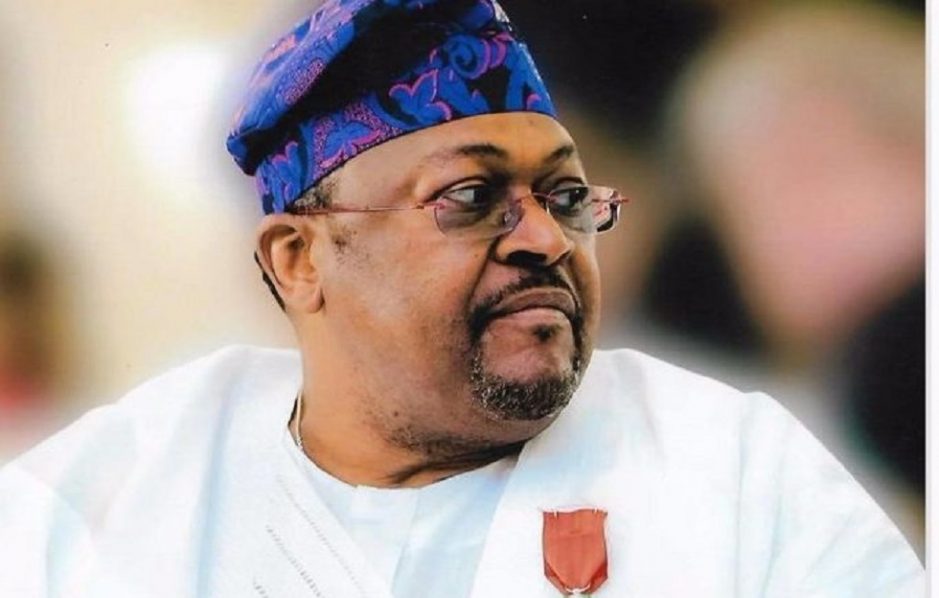...To get all news updates, Join our WhatsApp Group (Click Here)
Also Join our WhatsApp Channel (Click Here)
News of Mike Adenuga’s re-emergence as the second richest man in Nigeria got many Nigerians excited on Friday 12th January, 2024. Forbes re-evaluation of his net worth put it at $7.4bn as of January 11th 2024.
The news has led to fevered speculation as to how soon Adenuga, the moving spirit behind Globacom and Conoil, will attain the Number One position.
Conoil was among the 11 enterprises promoted by entrepreneurs that included M. K. O. Abiola, Alhaji Dantata, Alhaji Indimi, Alhaji Mai Deribe, Chief Michael Ibru, Kase Lawal, Chief Lulu Briggs, who received discretionary oil licences in 1990.
Mike Adenuga’s Consolidated Oil which got OPL 113 and is now known as Conoil, was the first to bring its field to first oil and has been producing ever since transforming that licence into one of Nigeria’s most successful indigenous oil and gas stories and making Adenuga the Godfather of Nigeria’s indigenous E&P companies.
Globacom has been around for over 20 years during which it has become one of Nigeria’s second largest telecommunications company beloved by subscribers and the generality of Nigerians for pioneering per second billing and causing a seismic shift in the industry.
Beyond Conoil and Globacom, Adenuga has substantial interests in banking and finance.
His recent valuation by Forbes as Nigeria’s second richest man and 5th in Africa is premised on the giant strides Globacom has made especially in corralling over 30% market share in Nigeria’s telecommunications ecosystem.
But this piece is not about Globacom or Conoil or his philanthropic exertions which have assumed legendary status. This piece was excited by a comment gleaned from a Whatsapp platform where someone had quipped: “How can someone with this kind of money maintain such an invisible profile?”
In a 2021 piece I published on Decoding Mike Adenuga, I had made the following observation: “When the story of 20th and 21st century Nigerian enterprise and industry is told, one name will stand out and confound those whose job it is to chronicle such things because they will have so little to go on because Mike Adenuga has built a public persona defined by near invisibility. In the age of social media and over-exposure, the man who admirers and traducers often refer to as The Bull, has no social media account, seldom ever attends events, rarely makes public appearances and hardly does media interviews, yet he is always on the pages of our newspapers and on the lips of many Nigerians.”
This piece will concern itself with Mike Adenuga’s personal brand. Adenuga is an enigma; the fabled elephant which yields different aspects to the fabled blind men.
Hailed as The Bull for his tenacity; heralded as the Great Guru for his business acumen and saluted as the Great Kahuna for his sagacity, Mike Adenuga has often been wrongly described as a recluse; on account of the fact that his public appearances have been likened to Halley’s Comet; a rare occurrence.
To return again to my old piece, I posed the question: “Why is this so? Why are we so enamoured of a man who prefers to operate from behind-the-scenes?”
It is because human beings are attracted to mystery. And that mystery, in the case of the Mike Adenuga brand, is deliberate and intentional. When it comes to his personal brand, Adenuga has mastered the art of “savvy exclusivity” and it is telling because he is a businessman who has amassed amazing wealth from providing freely available products that impact millions from Conoil’s low priced but high quality lubricants to Globacom’s per second billing and mass market product offerings.
By keeping his public interactions to the barest minimum, Mike Adenuga invites speculation and in speculating we exaggerate and in exaggerating we amplify his brand essence and value.
He is the big masquerade that appears once in a blue moon and such appearances lead to mass hysteria.
Here is a case in point: After President Bola Ahmed Tinubu was sworn in as incumbent president, his office was, understandably, besieged by visitors but no visitor received as much bandwidth and newspaper acreage as Adenuga even though he gave neither interview nor photo-op. The mere fact of his seeming emergence from his cocoon was enough to excite frenzy.
As far as news reports go, his last public appearance before heading to Abuja was at the Awujale’s palace and before then at the Igbinedion wedding.
By limiting his public sightings, Mike Adenuga is taking a leaf from the pages of marketing strategy which deal with scarcity and demand, something Robert Cialdini defined as the “scarcity principle of persuasion” in his book Influence: The Psychology of Persuasion .
This principle holds that the more difficult it is to access a service, obtain a product, or get hold of an offer, the more valuable it becomes. This is the principle behind scalping; where tickets to important events are, for instance, purchased in bulk thereby leading to scarcity and invariably driving the price up.
If Mike Adenuga was a product, he would be uber premium; a product that people would know of yet clueless as to how to purchase it. He would be more than a limited edition, thriving on savvy exclusivity and thus making the Mike Adenuga brand sui generis; in a class all of its own.
This is because as Lisa Ditzlmüller writes in L’officiel, by “deliberately limiting availability, they create an aura of specialness and create high demand for their exquisite goods.”
Mike Adenuga is defined by that savvy exclusivity and “specialness” and that is at the core of our eternal fascination with Nigeria’s second richest man who we never tire of talking and writing about.
As speculations continue as to how long we have to wait before Adenuga becomes Nigeria’s richest man, I will borrow words from a loquacious friend whose response to anything the baffles is always a simple – “if we don see ninety nine, wetin be hundred!”
Soon come.
***Toni Kan, a former Head of PR at Globacom, writes from London.
You can get every of our news as soon as they drop on WhatsApp ...To get all news updates, Join our WhatsApp Group (Click Here)
Also Join our WhatsApp Channel (Click Here)

















